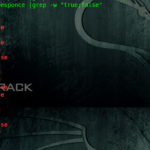Linux Malware Detect (https://github.com/rfxn/linux-malware-detect) is a great tool allowing to scan and clean Linux servers from malware. Whether you run Drupal, WordPress or Joomla, it runs in the background and monitors all traffic by system users, blocking malicious patterns. It is incredibly useful if your website is spamming. In a more recent post, Drupal ClamAV module vs maldet to eliminate malware in uploaded files, I outlined using Drupal ClamAV module with ClamAV to scan uploaded files for malware and virus. In addition to the normal user monitoring, it could be plugged into mod_security and provide great WAF (Web Application Firewall) protection. Whenever a file is getting uploaded to your server, maldet scans it for known malware and blocks all attempts to upload files that contain malware. Whether an infected file is uploaded via a known vulnerability in your application, maldet ensures such file is not stored in the filesystem. If your server has ClamAV installed, maldet automatically detects it’s availability and uses ClamAV engine to scan files and monitor user traffic in addition to its own. In my experience working with clean or compromised servers, adding maldet helps to stop the compromise immediately and buys you some time to clean […]
Continue reading→


